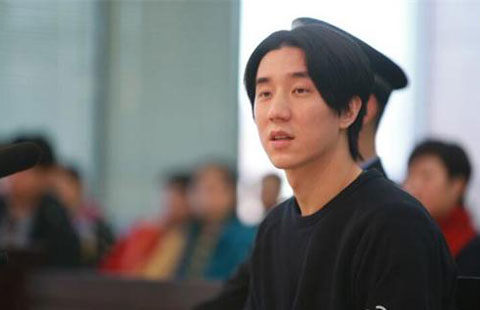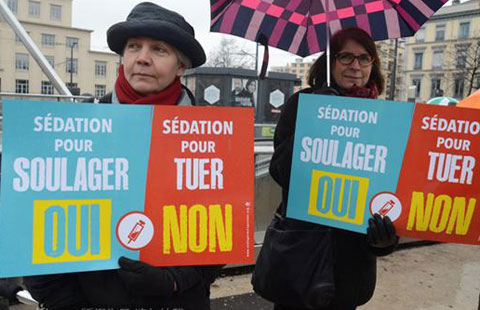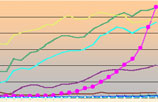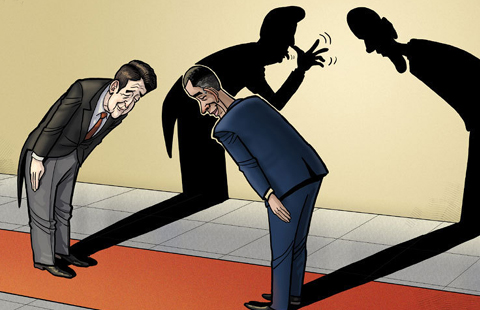伪球迷(wei qiu mi): Fake soccer fans
(China Daily) Updated: 2014-06-20 07:21The Football World Cup has made Chinese soccer fans crazier despite the absence of China from the "greatest show on Earth".
Apart from soccer fanatics who are willing to sacrifice their sleep to watch World Cup games live - which start at midnight Beijing time and continue up to 8 in the morning - there are also a number of people who have taken temporary interest in the game because of the fad generated by the glittering stars who are out to stamp their authority on the soccer field. These people are known as "fake soccer fans".
According to an opinion pool conducted by Horizon Research Consultancy Group in 2010, more than half of the Chinese respondents identified themselves as "fake soccer fans" whose motivation (and frequency) for watching the game was different from those of soccer fanatics. Social contact initiated by soccer-related small talk is one of the reasons why some people have become "fake soccer fans". But one thing is for certain, that the World Cup is source of genuine happiness both for true soccer fanatics and "fake soccer fans".
The World Cup has not only mobilized "true fans", but also produced a large number of "fake fans", or those who almost never watch soccer during other times and are not well versed in soccer rules or aware of the players' identities or the strength of the teams. Such people only watch soccer during the World Cup and will not make soccer a part of their life.
The Horizon Research poll also showed that "fake soccer fans" did not feel embarrassed with their label. In fact, 53.6 percent of the respondents were frank enough to admit that they were "fake fans". Among the "fake soccer fans", the proportion of women (64.9 percent) who identified themselves as such was higher than that of men (45.8 percent).
The World Cup has also given rise to "soccer social contact": 22.4 percent of the so-called fake fans watch games for fear of having no common topic to discuss because most of the people around them only talk about the World Cup for one full month. This shows that the World Cup is not only a tournament in which the top soccer-playing countries compete for glory, but also a catalyst of social contact.
(China Daily 06/20/2014 page9)











